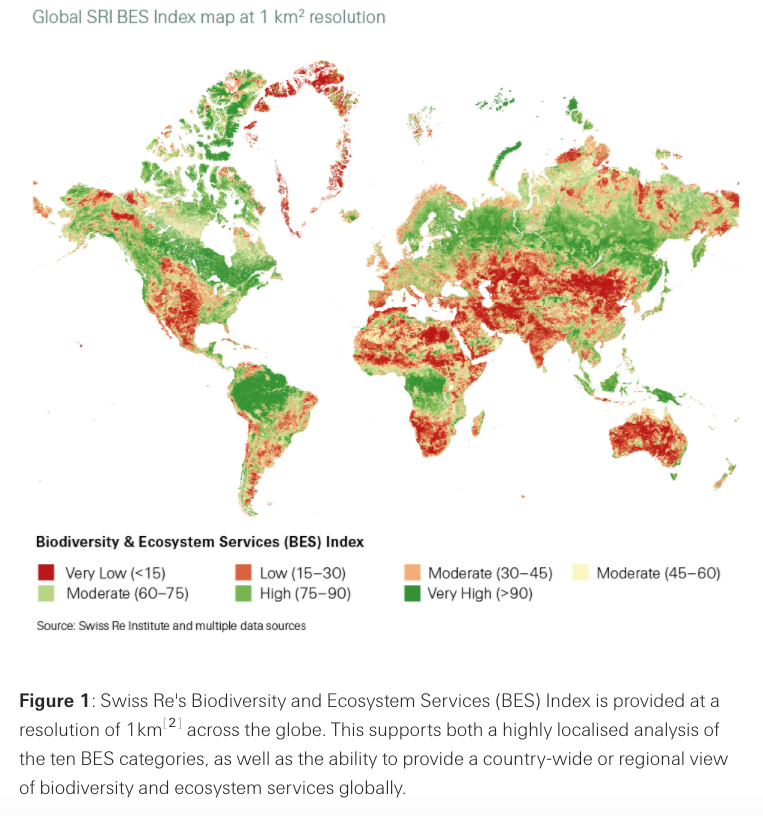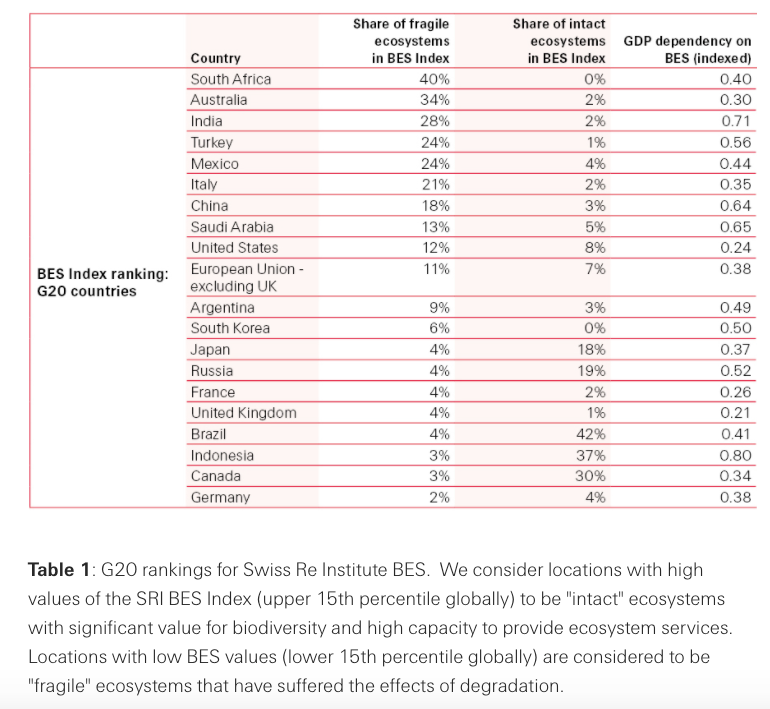The reinsurer said more than half of global GDP, equal to about $41.7 trillion, is highly dependent on “high-functioning biodiversity and ecosystem services” and warns 20% of countries are nearing tipping points.
Swiss Re Institute’s new Biodiversity and Ecosystem Services Index (BES), built on ten critical ecosystem services (water security, timber provision, food provision, habitat intactness, pollination, soil fertility, water quality, regulation of air quality and local climate, erosion control and coastal protection), offers government officials and business leaders with a more enhanced view into their local ecosystems that are so critical to their economies. Reinsurers can use BES to develop insurance solutions that protect communities at risk from biodiversity loss.
Among G20 economies, South Africa, India, Turkey, Mexico, and Italy had the highest shares of fragile ecosystems within the BES index. Meanwhile, countries, including Germany, Canada, Indonesia, Brazil, and the United Kingdom, had very low percentages of their ecosystems in a fragile state.
Global BES Index Map
BES Index Ranking G20 Countries
Christian Mumenthaler, Swiss Re’s Group Chief Executive Officer, said: “This important piece of work provides a data-driven foundation for understanding the economic risks of deteriorating biodiversity and ecosystems. In turn, we can inform governmental decision-making to help improve ecosystem restoration and preservation.”
“We can also support corporations and investors as they fortify themselves against environmental shocks. Armed with this information, we can also ensure the provision of stronger sustainable insurance services,” Mumenthaler said.
One example Swiss Re said is that certain developing and developed countries were at risk for water scarcity issues, which could damage manufacturing sectors, properties, and supply chains. The domino effect of biodiversity loss could have on economies is catastrophic if nothing is done.
…click on the above link to read the rest of the article…

